
Scott Tagawa, MD, professor of medicine and urology at Weill Cornell Medicine, discusses safety and tolerability findings observed to date, renal and hematologic considerations, and the role of pharmacists.

Scott Tagawa, MD, professor of medicine and urology at Weill Cornell Medicine, discusses safety and tolerability findings observed to date, renal and hematologic considerations, and the role of pharmacists.

The CLEAR framework helps guide pharmacists during the process of assessing and delabeling β-lactam allergies to improve patient outcomes.
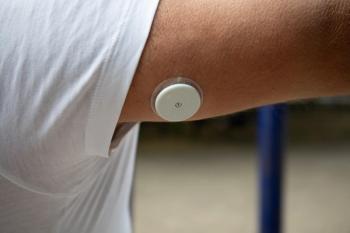
Researchers uncover key factors influencing glucose fluctuations in type 2 diabetes, highlighting the importance of continuous glucose monitoring for effective management.

Align your financial planning with your life goals, ensuring your money serves your life and not the other way around.

Home monitoring enhances pediatric asthma management, boosting patient engagement and awareness while providing valuable medical feedback for better control.

Young adults with high LDL-C levels face significant gaps in statin initiation and follow-up testing, highlighting urgent needs for improved cardiovascular care.

New findings reveal lorundrostat significantly lowers blood pressure and albuminuria in patients with chronic kidney disease, enhancing standard treatment efficacy.

Amir Masood, PharmD, is director of pharmacy operations at Safeway – Mid-Atlantic Division.

New research shows that an increased consumption of ultraprocessed foods significantly raises prediabetes risk in young adults, highlighting urgent dietary intervention needs.

The FDA approves Poherdy, a new biosimilar to Perjeta, enhancing treatment options for HER2+ breast cancer patients with affordability and efficacy.
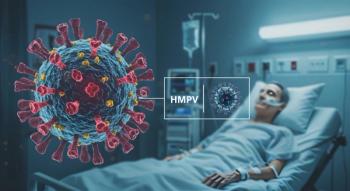
New research reveals similar severe outcomes for adults hospitalized with hMPV and RSV, emphasizing the need for awareness of both infections.

Pharmacists enhance LDL cholesterol management with tailored solutions like enlicitide, improving patient adherence and outcomes in cardiovascular care.

Ziftomenib gains FDA approval as a targeted treatment for relapsed acute myeloid leukemia with NPM1 mutations, offering new hope for patients.

Nazia Somani Babul, PharmD, BCACP, often serves as a primary or coinvestigator and collaborates with pharmacists, students, and residents.

CAR T-cell therapy revolutionizes cancer treatment but poses significant financial and logistical burdens, impacting patient access and outcomes.

A series of predictors were associated with a higher likelihood of intensive care unit (ICU) admission and subsequently poor outcomes in patients with Streptococcus pneumoniae bacteremia.

Giredestrant and everolimus show significant survival benefits for ER-positive, HER2-negative advanced breast cancer post-CDK4/6 therapy.

A nasal vaccine against whooping cough shows promise in blocking infection and enhancing respiratory immunity, offering a needle-free solution.
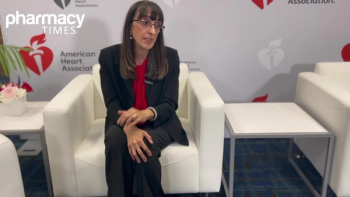
Discover how objective activity monitoring with accelerometers transforms cardiovascular risk assessment and treatment evaluation, enhancing patient care for pharmacists.

Hypertensive disorders of pregnancy confer increased cardiovascular risk, with heightened risk corresponding to more severe hypertension.
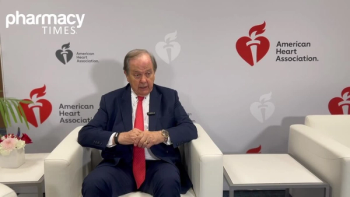
Expert highlights the benefits of early combination therapy in hypertension management, emphasizing improved blood pressure control and reduced side effects.

New research highlights the benefits of combining lutetium PSMA 617 with standard treatments, showing improved outcomes for prostate cancer patients.

Heart failure prevention can be integrated into health systems to optimize care.

Only Humans Can Ensure AI Is Ethical and Unbiased

Talquetamab shows promising efficacy in heavily pretreated patients with relapsed/refractory multiple myeloma, reinforcing its role in advanced treatment strategies.

Semaglutide shows significant weight loss and reduces obesity-related health risks, offering a promising solution for effective weight management.
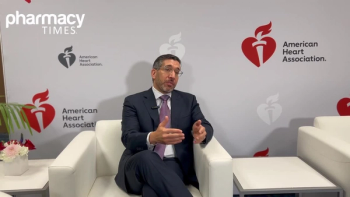
Expert reveals ongoing disparities in heart valve disease care, stressing the need for improved diagnosis and treatment equity for vulnerable populations.

Boehringer Ingelheim showcases its commitment to cardio-kidney-metabolic research, highlighting innovative therapies and advancements at AHA 2025.

Discover how emerging therapies in cardio-kidney-metabolic health reshape disease management at AHA 2025, highlighting interconnected health pathways.

The new year can present challenges to health-system pharmacy.